ELECTION IN BANGLADESH IS NOT ACCEPTED BY AMERICA as It is Not Accepted by the Bangladeshi Voters
Bangladesh conducted its 12th parliamentary elections, resulting in the Awami League, led by incumbent Prime Minister Sheikh Hasina, securing a fourth consecutive term. However, several political parties, notably the Bangladesh Nationalist Party (BNP), the primary opposition, chose to boycott the election.
Despite assertions from a contingent of international observers, who characterized Bangladesh’s January 7 election as “free, fair, and peaceful,” officials from various countries have raised concerns about the credibility of the results. The period leading up to the vote was marked by protests, occasionally escalating into violence. A crackdown on opposition activists resulted in the imprisonment of tens of thousands.
International observers, including former U.S. Congressman Jim Bates, were invited by Bangladesh’s Election Commission to visit polling centers in Dhaka during the voting process. Following the conclusion of the polls, these observers conducted a press conference where they provided positive assessments of the election.
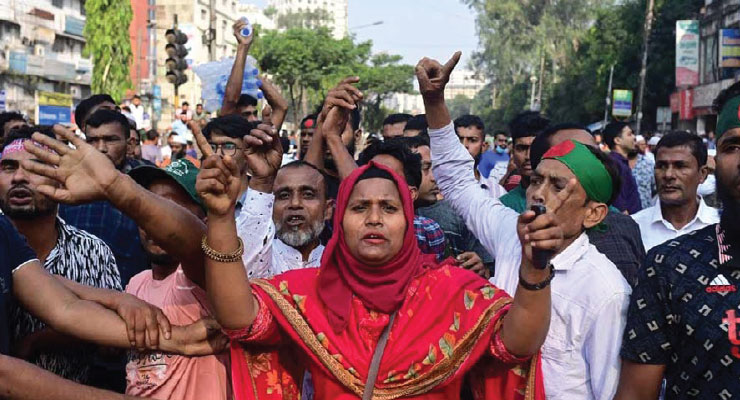
“I’d like to say it’s a free and fair election already,” Bates said before the results were announced.
But a U.S. State Department spokesperson told VOA in an email that “The United States Government did not field an observation team for the 2024 Bangladesh Parliamentary elections. The individuals in question were acting as private citizens. … Their comments do not represent the views of the U.S. government.”
Instead, the United States, United Kingdom, and the United Nations released statements expressing concerns about the democratic process in general and the human rights situation. “The United States shares the view with other observers that these elections were not free or fair and we regret that not all parties participated,” Mathew Miller, a U.S. State Department spokesperson said
in a statement. “The United States condemns the violence that took place during elections and in the months leading up to it.”
“Respect for human rights, rule of law and due process are essential elements of the democratic process,” the United Kingdom’s Foreign, Commonwealth and Development Office said in the statement. “These standards were not consistently met during the election period.”
Supporters of Islami Andolan Bangladesh party attend a rally demanding to abolish what they call a “dummy election” and to reorganize a fair election under a caretaker government at the Baitul
Mokarram National Mosque, in Dhaka, Jan. 9, 2024. U.N. human rights chief Volker Türk noted, “In the months leading up to the vote, thousands of opposition supporters have been detained arbitrarily or subjected to intimidation. Such tactics are not conducive to a truly genuine process.” Türk urged the Bangladeshi government to create conditions for a truly inclusive democracy 123. While the Western democratic nations and international organizations primarily voiced criticism of the election, certain countries, such as China, Russia, and India, promptly extended congratulations to Hasina.

The Chinese envoy in Bangladesh took the lead in congratulating Hasina, and Indian Prime Minister Narendra Modi reached out to applaud her victory, expressing optimism for the sustained close relations between the two neighboring countries. “Spoke to Prime Minister Sheikh Hasina and congratulated her on her victory for the fourth consecutive term in the parliamentary elections. … We are committed to further strengthen our enduring and people-centric partnership with Bangladesh,” the Indian prime minister posted on X.
The opposition coalition insisted on the government’s resignation before the election and the establishment of an interim, nonpartisan government. When the Hasina administration declined, the BNP declared a non-cooperation movement, urging the public not to collaborate with the government or participate in the election. Official data from the Election Commission indicates a voter turnout of 41.8%. However, the credibility of this statistic has been questioned by various international media outlets, observers, human rights organizations, and even some contestants in the election.
VOA and Al Jazeera reported one reason for suspicion being an unusual surge in the turnout numbers. The Election Commission secretary initially estimated turnout at 27.15% an hour before polls closed. Nevertheless, the commission’s final figure was reported as 41.8%. Critics argue that the assertion of more than one-third of additional votes cast in the final hour of voting casts serious doubt on the official figure.
Among the 298 officially announced results, 280 seats are secured by the ruling Awami League and so-called independent candidates who are Awami League members. As a result, 94% of the parliament seats will be filled by lawmakers who are members of the ruling party.
Of the 27 parties who fielded candidates in the election, 23 failed to secure a single seat.
G.M. Qader, chairman of the Jatiya Party, which managed to win 11 seats, told a local TV station the elections were held under government control. “Whoever the government wanted to win, won,” Qader said. “I believe this election will not gain credibility.”
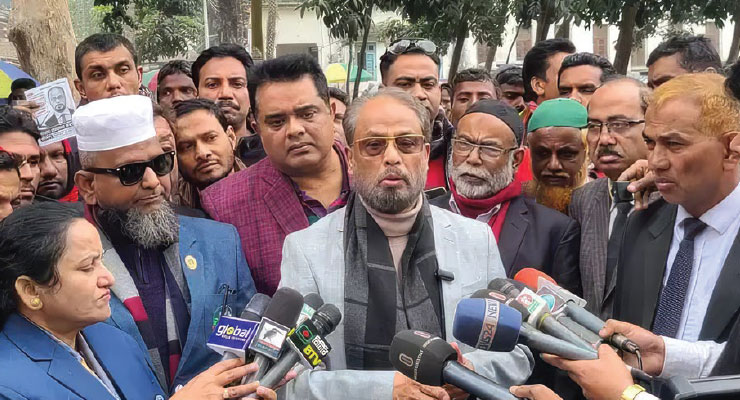
The surprise was who came second, Al Jazeera commented. Instead of any political party, independent candidates secured a total of 63 seats, the second highest after Hasina’s Awami League (AL), which won 222, creating a problem of finding a parliamentary opposition.
The current opposition, the Jatiya Party, managed to secure just 11 of the 300 parliamentary seats, according to the Election Commission.
Almost all the winning independent contenders were people who had been rejected by the AL but were asked by the party leadership to stand as “dummy candidates” to give the election a competitive veneer in front of the world.
“This is a bizarre outcome of a bizarre election,” Shahidul Alam, a renowned Bangladeshi rights activist and photographer, told Al Jazeera. “Dummy candidates in a dummy election will now lead to a dummy parliament.” According to Professor Ali Riaz, a political analyst at Illinois State University, Bangladesh is progressing towards one-party rule, where the Awami League retains power, and other parties function as the parliamentary opposition with the support of the ruling party.
Prime Minister Hasina has, on two recent occasions, labeled the BNP as a terrorist organization, sparking speculation among political analysts and activists about a potential ban on the BNP from participating in politics under the new government.
Michael Kugelman, director of the South Asia Institute at the Wilson Center, mentioned in Time magazine that none of the contenders would likely pose a significant challenge to Hasina’s party. He emphasized that the Awami League’s return to power seems almost certain, and he expressed concern about the precarious state of Bangladesh’s democracy after the election. The legitimacy of the vote hasbeen called into question due to allegations of a widespread crackdown against the BNP. The BNP claims that approximately 20,000 of its members were unjustly imprisoned on fabricated charges ahead of the election. The government contested these figures, asserting that arrests were not politically motivated, with the actual number ranging from 2,000 to 3,000. However, the country’s law minister, in an interview with the BBC, suggested that around 10,000 individuals were likely arrested.
Abdul Moyeen Khan, a former minister and BNP leader, said the spate of arrests forced him and scores of other party members to go into hiding for weeks until candidacy nominations were halted. “It was the only way we could ensure our safety and carry on raising our voice (against the government)” he said.
“We are not boycotting an election — what we are boycotting is a fake and one-sided election that this government is carrying out,” Khan added.
Time Magazine reports Hasina is recognized for her role in transforming the economy of a young nation, emerging from war, and elevating its garment sector to global competitiveness. Her supporters applaud her for preventing military coups, countering the threat of Islamic militancy, and enhancing Bangladesh’s international standing by fostering diplomatic ties with countries like India and China, often in conflict with each other.
However, critics argue that her leadership risks steering Bangladesh towards one-party rule, endangering democracy. They point to government agencies increasingly resorting to oppressive measures to silence critics, curtail press freedoms, and restrict civil society.
Despite concerns over the legitimacy of the vote, Hasina, after casting her ballot, dismissed them, emphasizing her accountability to the people. She stated that whether the public accepted the election results or not was of utmost importance to her and asserted her commitment to preserving democracy in the country, emphasizing its crucial role in development.
Bangladesh is grappling with the impact of the global economic slowdown, revealing vulnerabilities in its economy that have led to labor unrest and dissatisfaction with the government. Fitch Ratings, as of January 11, 2024, anticipates broad policy continuity in Bangladesh following the government’s election victory, despite the main opposition, the Bangladesh National Party, boycotting the vote. However, external challenges persist.
The Awami League maintains a robust position to pursue its policy agenda, focusing on reducing the poverty rate, developing infrastructure, enhancing healthcare, building resilience to climate risks, and striving for upper-middle-income status by 2030. Despite this, Bangladesh faces ongoing external challenges. In September 2023, the Outlook on Bangladesh’s Long-Term Foreign-Currency Issuer Default Rating (IDR) was revised to Negative from Stable, while the IDR was affirmed at ‘BB-’. This adjustment reflected a decline in external buffers, with official reserves dropping to USD 21.7 billion as of January 4, 2024, less than half their peak in 2021. This heightened vulnerability to shocks necessitates measures to rebuild official reserve buffers, potentially through greater exchange rate flexibility. However, such a move could also induce near-term inflation pressures.
US Ambassador to Bangladesh Peter Haas, who had been vocal about free and fair polls in Bangladesh before the January 7 national election, was the first diplomat to meet the foreign minister of Bangladesh Hasan Mahmud after the election and Hasina’s new cabinet formed.
“I look forward to working very closely in the coming months to advance our mutual interest,” the US envoy Peter told reporters after a meeting with the foreign minister of the newly formed cabinet of Sheikh Hasina.
“Looking ahead, the United States remains committed to partnering with Bangladesh to advance our shared vision for a free and open Indo-Pacific, to supporting human rights and civil society in Bangladesh, and to deepening our people-to-people and economic ties,” said, US State Department Spokesperson Mathew Miller a day after the election.

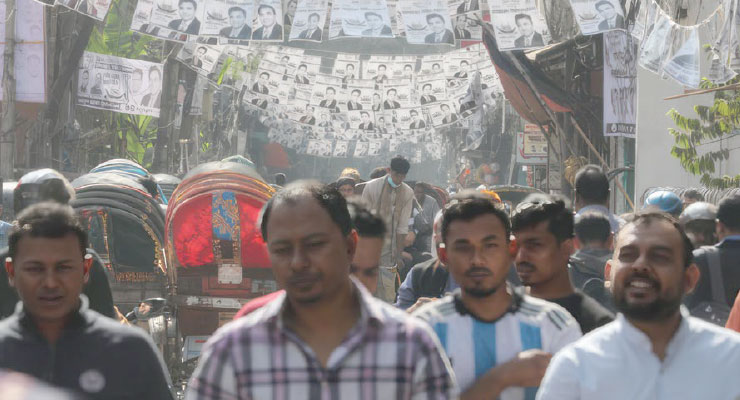
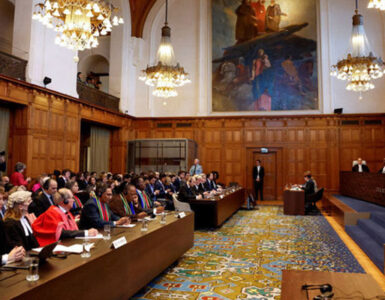
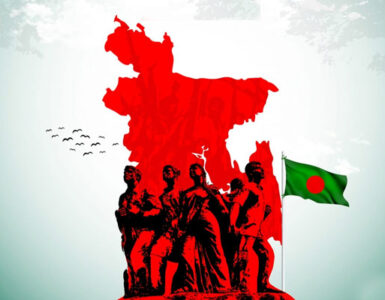
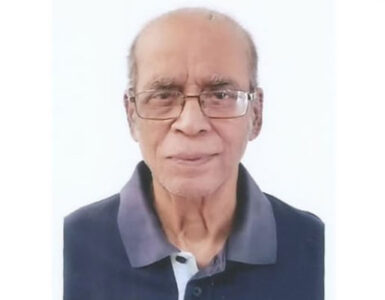
Add comment